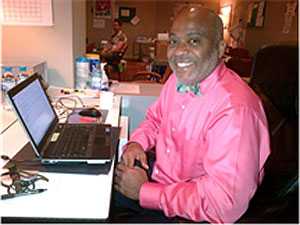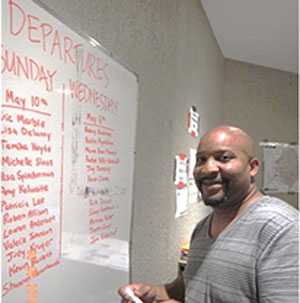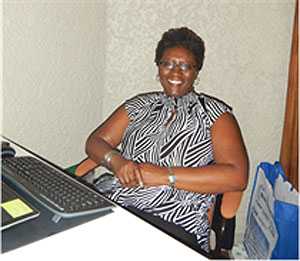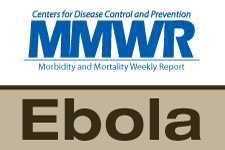CDC Staff Support Sierra Leone

Gary Cobb, deputy director of the Division of Scientific Resources in the National Center for Emerging and Zoonotic Infectious Diseases
On February 17, 2015, Gary Cobb began his tour as the deputy director for the response in Sierra Leone, dealing with budgets, logistics, day-to-day operations and serving as a liaison with the U.S. Embassy in Freetown. Despite the challenges he faced, Gary made managing logistics and operations in CDC’s Sierra Leone office look easy. “Resources are limited, and you have to make do with whatever you have until you get what you actually need. We may have to order supplies from another country or the United States. Or we sometimes will call the Emergency Operations Center in Atlanta and they’ll send supplies through people who are coming here. Because we are in response mode, time is of the essence.”
Having participated in the Ebola response in Nigeria as well, Gary saw the effect it had on the country. When asked to go to Sierra Leone as the deputy director of the response there, he said “I felt I could give back or be of some help here in Sierra Leone because it was devastated much more than Nigeria.” Not only did Gary give back, he also inspired others to do the same.

Arthur Hudson, program specialist from the Division of Scientific Resources in the National Center for Emerging and Zoonotic Infectious Diseases
Arthur Hudson, the logistics team lead in Sierra Leone from March 20 to May 31, 2015, credits Gary with bringing this opportunity to his attention. Arthur saw it as a chance to make an impact and experience how CDC responds to a health emergency first-hand – it wasn’t something he could turn down. “I thought it would be good to learn about how CDC responds to different health emergencies and to see what happens in the forefront of the emergency – all the work it takes to put a response together,” says Arthur.
His responsibilities included ensuring that personnel going out to the districts have lodging, equipment, and supplies, helping other responders with orientation, exchanging currencies, and regular coordination with the U.S. Embassy in Sierra Leone.
Arthur deployed to Sierra Leone at the same time as fellow DSR staff member, Drenda Morrissette. Drenda began her deployment on March 20 as the administrative officer for the CDC Sierra Leone office, where she handled budget, petty cash, and procurement. She also supported the country director, the deputy country director, and the response deputy and worked closely with the U.S. Embassy in processing invoices, spending plans, and budgets.
Drenda found the computer system in Sierra Leone to be a challenge. “It’s not as fast. That’s not an astronomical challenge but enough to slow my process down,” she explains. Both Drenda and Arthur noted that getting necessary supplies in a timely manner were one of the challenges they constantly faced. But these challenges weren’t enough to keep Drenda away – she extended her deployment to help the CDC Sierra Leone office transition from focusing solely on Ebola to additional public health issues, and even enlisted for another deployment.

Drenda Morrissette, program specialist from the Division of Scientific Resources in the National Center for Emerging and Zoonotic Infectious Diseases
When asked what she will remember most about her experience, Drenda explains, “I enjoy working with the people at the Embassy, learning the different cultures. The people are friendly. They’re very caring. Some are locals and some are Americans working abroad.”
What Gary will take from this trip is his bond with a special son and the family he has adopted. “When I first came to the hotel, one of the guys who was working the front desk, he’s around 20, and he was quite intrigued with seeing a black male from America. I learned he was raised by his grandparents. His grandmother had gotten really sick, and he didn’t ask for any money. But I gave him money to take her to the doctor. It was a very simple fix, and without it, she could have died.” The man that Gary helped was the caregiver for his grandmother, grandfather, sister, two brothers, and several children within the compound. “This front desk job is the only job that he has, and he provides for all of them,” says Gary. “He’s always smiling, grateful for anything. How can a person smile and go through those kinds of things?”
Arthur describes his deployment as a rewarding experience. “It gives you a chance to do things you didn’t think you could do, and it gives you a sense of accomplishment for helping others. You know you played a part in something that’s bigger than you.”
See CDC responder profiles and stories for more information on how CDC is responding to the 2014 Ebola outbreak.
- Page last reviewed: July 30, 2015
- Page last updated: July 30, 2015
- Content source:




 ShareCompartir
ShareCompartir